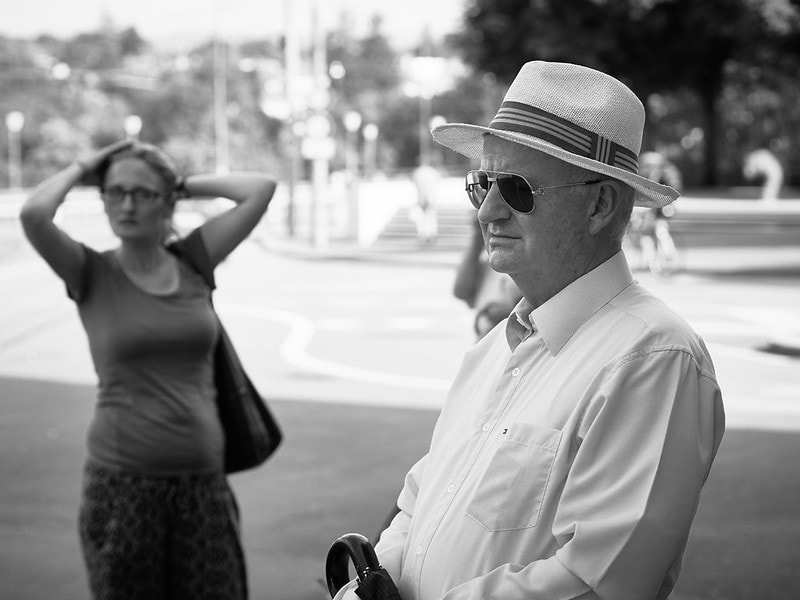|
There was an elderly gentleman sitting on a bench thinking about his own business. A woman passing by looked at him and thought: 'What an old pervert, creepy!' After a few minutes a second woman was walking by the bench when she noticed the old gentleman. She smiled and felt a warmth inside and she thought: 'it reminds me of when my grandfather used to take me to the park to play, the best afternoons of my childhood'. Shortly after, a third person passed by, who looked at the old man sitting on the bench and thought: "Poor old bastard, certainly homeless and desperate".
Why do three people react so differently to the same man? How can this happen? Which of the three saw the man on the bench for who he really was? The man sitting on the bench was actually the manager of the local bank, newly assigned and therefore still unknown to many. He had been really sick in the past and because of that he looked much older than he really was. Now that he was better he had changed his way of life and was enjoying the little things in life like sitting on a park bench on his lunch break. The first woman did not see the man who was sitting on the bench, this is now obvious, she saw a painful projection of what she experienced as a young girl when an old man molested her while she was playing in the park. Since then she can't help but have an emotional reaction if she sees an elder sitting alone in the park. The second woman also did not see the man who was sitting on the bench, she saw a projection of her dear grandfather taking her to the park on the joyful and playful afternoons of her childhood. The life of this woman has become really difficult over the years and the memory of her happy childhood still gives her great comfort. Seeing a scene in the park that reminds to her of those happy times arouses gratitude in her. The third person also did not see the truth, at least not the truth of the man sitting on the bench. He too saw a painful projection of his past , when he was really close to becoming homeless and no longer being able to take care of his family. Seeing the old man catapulted him back for a second in those desperate times with no prospects. For him that experience is still so painful that he feels he needed to get away from that image of the old man on the bench as quickly as possible. Each of the three passing by the bench interpreted who the elder on the bench must have been based on information related to personal experiences. This is what a projection is, seeing in other people pieces of our experience, interpreting what we see in others through the glasses of who we are, what is ours, what belongs to our experience, our history, our healing process. When we judge others, or come to conclusions about others and their worth, or feel confident we know about the motivations that others have for their actions, without considering the projection we may have on them, we run the risk of missing two great opportunities: On the one hand we lose the opportunity to discover ourselves more deeply, to become aware of what was touched within us that generated that interpretation. Finding out what is still painful or important for us to remember. On the other hand, we lose the ability to find out who the other really is. To meet the other and ask questions to unveil the truth of the other as he or she would describe it. Imagine how this awareness of the projections we have on others could change the way we relate to our life partners, our children, friends, colleagues etc.
0 Comments
Leave a Reply. |
Categories
All
Archives
March 2024
|
|
Lara Briozzo
It is all about life - Coaching, Psychotherapy & Relationship therapy - kvk 63578611 www.ItIsAllAboutLife.eu; info@itisallaboutlife.eu; Terms & Conditions Algemene voorwaarden Termini e condizioni Privacy policy Privacyverklaring Informativa privacy Discaimer EN Disclaimer NL Disclaimer IT © Lara Briozzo The texts in this website cannot be copied without authorization De teksten op deze website mogen niet zonder toestemming worden gekopieerd I testi presenti in questo sito non possono essere copiati senza autorizzazione Photo's Flickr |
|


 RSS Feed
RSS Feed
